All the foods to eat and to avoid if you have PCOS
Last updated on - Sep 24, 2019, 14:43 ISTShare fbsharetwsharepinshare
01/14If you have the Polycystic Ovarian Syndrome, here’s what should and shouldn’t be in your diet


September marks Polycystic Ovarian Syndrome (PCOS) awareness month. This syndrome occurs due to a hormonal imbalance in women once they reach an age that’s fit for reproduction. Ovaries may develop collections of follicles and fail to release eggs as well. While its exact cause is not understood, genetics and environmental factors play a significant role. Controlling your diet plays an important role to help avoid or curb the issue. These are the foods to eat or to avoid if you have PCOS...
02/14Walnuts

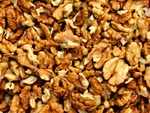
Some studies suggest MUFAs and PUFAs found in walnuts can help improve insulin, androgens, and cholesterol levels in women living with PCOS. Consume these nuts as a snack. You can even toss a few in a salad. Make sure to consume these nuts as often as you can.
Picture Courtesy: Google Images
03/14Avocados

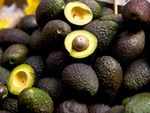
Avocados are having a major moment in the wellness world. This fruit can be extremely satisfying and help you feel full for longer. They should also be an essential part of a PCOS diet as it is a healthy source of unsaturated fats. "Avocados pack a high dosage of essential fatty acids, which can help regulate hormones, periods, and ovulation," Avner Hershlag, Chief, Professor, Obstetrics and Gynecology at Northwell Health Fertility, told a news portal.
Picture Courtesy: Google Images
04/14Blueberries

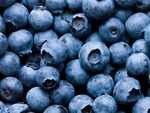
Blueberries are packed with vital nutrition our bodies need to function well. If you have PCOS, you should add these juicy berries to your diet. Some studies suggest it can help increase insulin sensitivity. There are many ways to incorporate them into your meal plan. You can consume it with yoghurt in the morning for breakfast or add them to a smoothie.
Picture Courtesy: Google Images
05/14Sugar

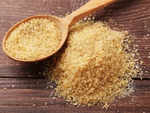
Brown sugar, white sugar, high-fructose corn syrup — call it by any name, sugar has been shown to exaggerate hormonal symptoms in women. That’s why it's important to limit your intake of added sugars. This will even help to control your body weight.
06/14Red meat


While many might think that a Paleo diet (a protein-packed diet) might help you with PCOS, many dietitians believe that avoiding red meat is important if you have PCOS. Eating too much red meat can cause a decrease in the production of sex hormone binding globulin (SHBG), which is vital to reducing testosterone levels — something that’s critical in PCOS recovery.
07/14Vegetable oils


Vegetable oils make the list of foods to stay away from if you have PCOS because they are high in omega 6 fatty acids which are pro-inflammatory when not adequately balanced by a similar amount of anti-inflammatory omega 3s. Also, eliminating vegetable oils is really easy to do given all the tasty alternatives like coconut oil, olive oil, avocado oil and many more.
08/14Kale

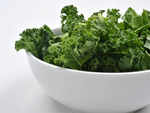
When eaten raw, all cruciferous vegetables contain substances called goitrogens that suppress thyroid function. This contributes to PCOS. Avoid eating raw kale and make it a habit to cook vegetables like cauliflower and kale before eating. Don’t worry about celery, romaine lettuce, beet leaves, and chard — you can eat those raw as they do not contain goitrogens.
09/14Sardines

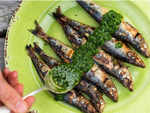
Oily fish like sardines and salmon or even chia seeds are good sources of Omega 3 fatty acids which reduce the level of testosterone and will help regulate your menstrual cycle. These fish items are necessary to add to your diets to help the PCOS issue.
10/14Artificial sweeteners


Most women who struggle with hormonal issues also struggle with blood sugar issues and in a quest to avoid the sweet stuff, most women tend to turn to artificial sweeteners which end up causing a weight gain issue too. Weight gain could eventually lead to hormonal imbalances and this is not good for those with PCOS.



